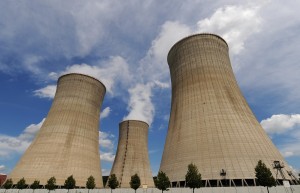As geopolitical tensions continue to rise in the Asia-Pacific region, China is speeding up the drafting of a nuclear safety law and atomic energy law. A white paper on its nuclear emergency preparedness was released on January 27.
China began to build its first nuclear power plant in 1985. It has made fast progress in legislation of nuclear emergency response, said the document issued by the State Council Information Office. China adopted a regulation on emergency management of nuclear accidents in 1993. It was the first in this area. China later adopted the law on prevention and control of radioactive pollution. The law on emergency response covered nuclear accidents, the white paper said.
The state security law was revised in July 2015. Under the revised law, it reinforced regulation on nuclear emergencies. In recent years China has also set up a nuclear emergency management system. The new system delegates responsibility with clear division of duty among the central government, provincial governments and nuclear power plants.
The national level comprises the National Nuclear Accident Emergency Coordination Committee. This committee is made up of civilian departments and military. It also has a general office in charge of regular works.
The provincial governments, autonomous regions and municipalities where nuclear power plants are located, have set up nuclear emergency coordination departments. These governments took charge of emergency response within their jurisdiction.
While, the central government has drawn up a national contingency plan, provincial governments and all nuclear power plants issued their own plans.
With major accidents taking place in nuclear reactors across the world such as Fukushima in recent times, countries have been under pressure to implement robust nuclear safety laws to prevent disasters and have emergency response systems in place in the event of a disaster. The International Atomic Energy Agency (IAEA), set up by the United Nations in 1957, was to act as an auditor of world nuclear safety. This role was increased greatly after the Chernobyl accident in Ukraine in 1986.
(Sridhar Ramaswamy contributed inputs for this article)
Author Profile
- India Writes Network (www.indiawrites.org) is an emerging think tank and a media-publishing company focused on international affairs & the India Story. Centre for Global India Insights is the research arm of India Writes Network. To subscribe to India and the World, write to editor@indiawrites.org. A venture of TGII Media Private Limited, a leading media, publishing and consultancy company, IWN has carved a niche for balanced and exhaustive reporting and analysis of international affairs. Eminent personalities, politicians, diplomats, authors, strategy gurus and news-makers have contributed to India Writes Network, as also “India and the World,” a magazine focused on global affairs.
Latest entries
 DiplomacyJanuary 5, 2026India walks diplomatic tightrope over US operation in Venezuela
DiplomacyJanuary 5, 2026India walks diplomatic tightrope over US operation in Venezuela India and the WorldNovember 26, 2025G20@20: Africa’s Moment – The Once and Future World Order
India and the WorldNovember 26, 2025G20@20: Africa’s Moment – The Once and Future World Order DiplomacyOctober 4, 2025UNGA Resolution 2758 Must Not Be Distorted, One-China Principle Brooks No Challenge
DiplomacyOctober 4, 2025UNGA Resolution 2758 Must Not Be Distorted, One-China Principle Brooks No Challenge India and the WorldJuly 26, 2025MPs, diplomats laud Operation Sindoor, call for national unity to combat Pakistan-sponsored terror
India and the WorldJuly 26, 2025MPs, diplomats laud Operation Sindoor, call for national unity to combat Pakistan-sponsored terror








